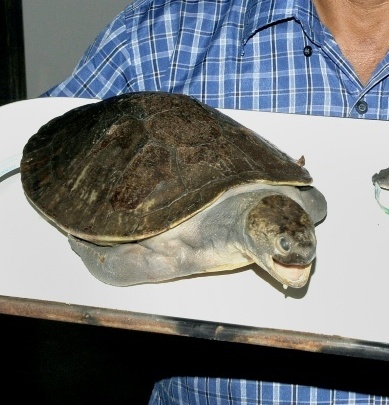Hero in a half-shell! New species of turtle discovered on island
A new species of freshwater turtle has been discovered in Papua New Guinea, one of a group that would have been present for the full geological formation of its main Pacific island, researchers said. Mountainous and tropical Papua New Guinea is known for its rich biological diversity, but much of its remote areas are relatively unexplored. The new turtle is one of three distantly-related species – Elseya novaeguineae, Elseya schultzei and the new Elseya rhodini – found across New Guinea island, according to a recent study published in international journal Zootaxa.
The three species evolved from a common ancestor between 17 and 19 million years ago.
Lead author Arthur Georges from the University of Canberra
Lead author Arthur Georges from the University of Canberra said the species evolved at least 17m years ago. "These ages are quite remarkable and came as a surprise, because it means these turtles have together seen the full geological development of the island of New Guinea,“ he said. "The other species of freshwater turtle appear to have arrived after New Guinea had formed much as we see it today,” he added. The newly-discovered turtle species is part of the Chelidae family of side-neck turtles which are restricted to South America and Australia, along with PNG, Timor and Rote in Indonesia.

new turtle